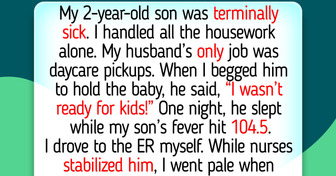Yes ,Same thing i felt in my maximum relationships.I calculated it same way.But i think its bad to say emotionally dependent.I think its gift from god to behave and feel like that.Only mothers have that emotional attachment from child.And without having child i feel all in relationship Same way.So look my life in different spectrum after shocking relation.I take 2months to calculate why it happens to me. .than answer will come ,You are nurture and you need to use to cultivate life.So make onenotebook and write all feelings i loved to share with parter.I never seeback pages,i wrote and again next day all cycle i done .I do it till now .but it helps me to a lot.bcz u write at end of the day and again you feel complete day and again you write it at end of the day.It is really like giving a gift to your child (life).Its incrediabely Best to talk with notebook also.Try it.
10 Signs That Help Recognize Toxic Relationships at the Very Beginning
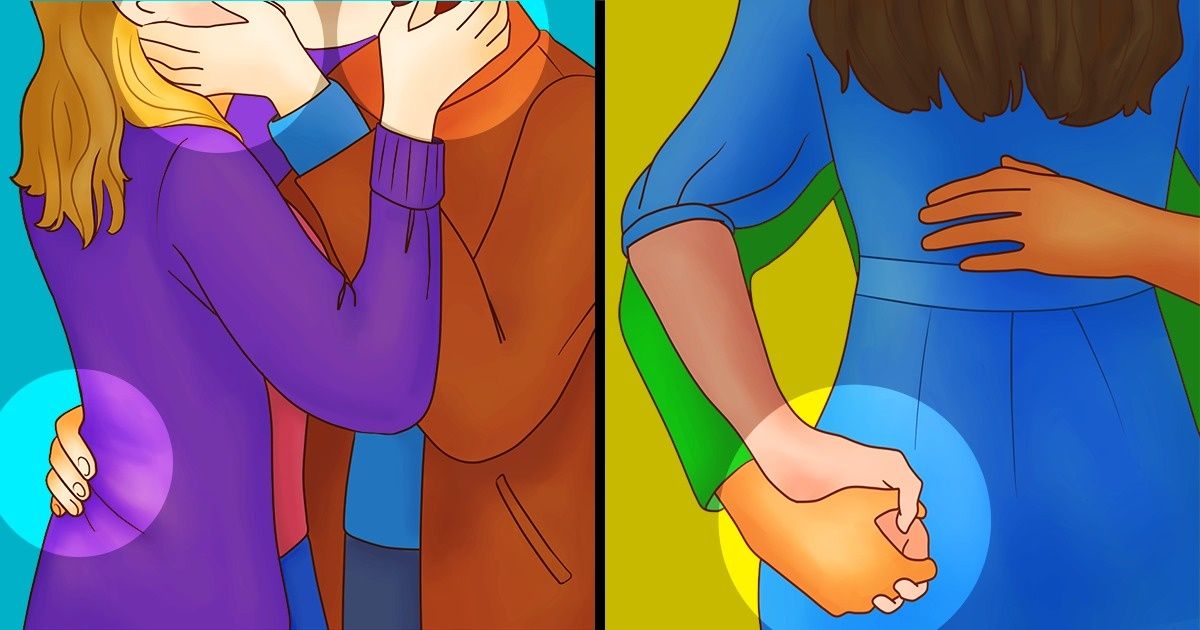
If you instantly fall in love without really knowing a person, if you can’t stop thinking about someone, if your mood depends entirely on whether your love interest called you today, then you are prone to unhealthy emotional dependence. It is usually a trait of people who don’t have enough love for themselves and feel the need to seek it from the outside. It turns into a vicious circle of toxic relationships, but, fortunately, there is a way out of it.
Emotionally dependent people put their partner on a pedestal and build their whole lives around them. They try to either completely control their partner, or they play the role of the victim while they actually derive pleasure from their own suffering.
Psychotherapist Darlene Lancer writes that true love and emotional dependence are different things and it’s crucial to learn how to tell them apart.
We at Bright Side collected alarming signs that indicate the beginning of unhealthy affection. Don’t let yourself fall into the trap of toxic relationships.
10. You immediately think that you have found the love of your life.
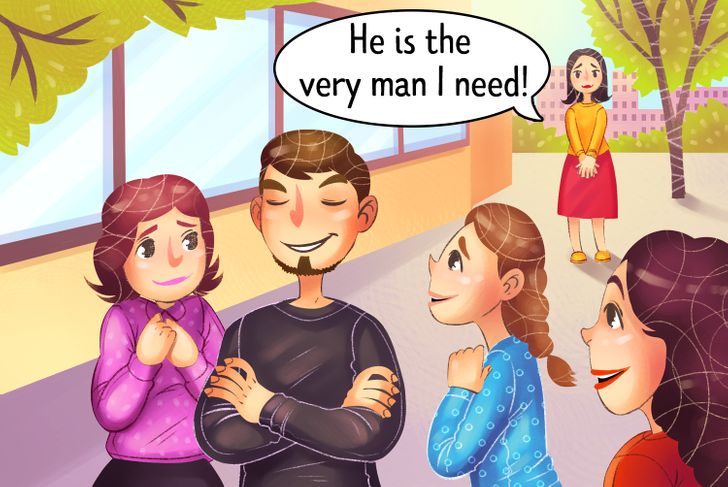
There are people who are very amorous and after the first date they race home with feelings of, “This is the perfect person whom I’ve been waiting for all my life!” Unfortunately, it often turns out that this is not so. After meeting someone who gives you butterflies, wait some time until you cool off to see how you feel.
If you find yourself in such a situation, take a break every few days to be on your own and do something that distracts you from thinking about this person.
9. You idealize your partner too much.
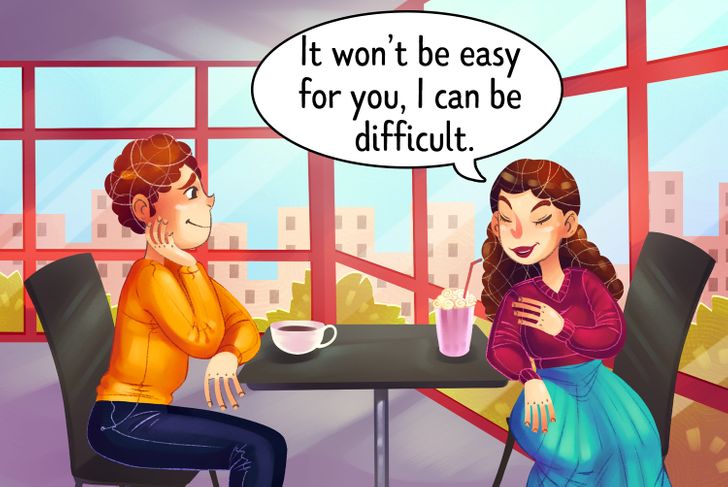
At the beginning of the relationship, it’s important to listen more than you speak, and the key is to listen carefully. If a person casually says, “I’m not the easiest person...” then most likely, they’re giving you a heads up about something that they know about themselves that you aren’t aware of yet. If something is mentioned in even the most casual manner, don’t overlook it.
There is no need to selflessly reassure people that, “It’s all nonsense! We’ll manage!” When someone throws in “warnings” like these, they actually mean that they don’t think that you’re right for them and they don’t want you around or that they’re ready to continue the relationship only on their terms. These aren’t things that someone who is in love would be feeling or saying, so if you find yourself hearing such phrases more often then not, it may be necessary to either address the issue or consider whether or not you need to be in such a relationship.
8. You neglect friends to please your partner.
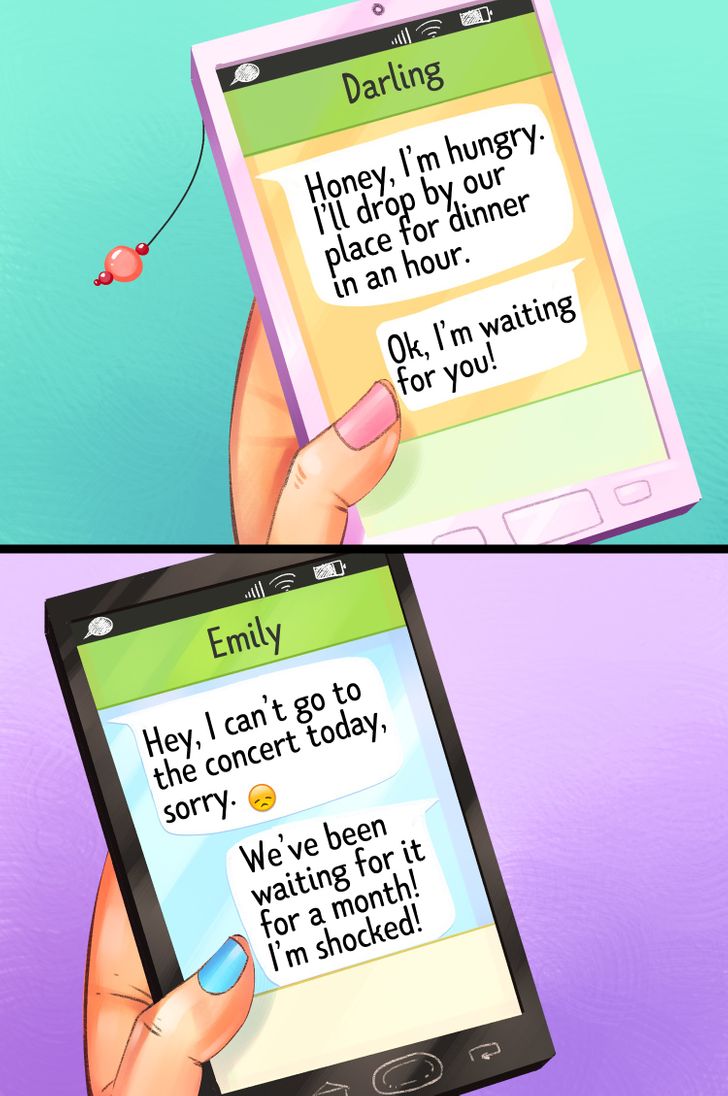
Don’t neglect your friends when you enter a relationship. When we first start seeing someone, it’s natural to be focused on this one person and to want to share everything with your friends. But you should keep in mind that your friends want to spend time with you and they don’t necessarily want to spend the whole time listening to stories about the person you’re dating.
Your friends can also have certain feelings about the person you’re seeing, and these feelings are different from yours since their thoughts aren’t clouded by emotions. So it’s better to introduce your partner to your friends early on. Perhaps they will notice something that you haven’t and keep you from immersing yourself in a toxic relationship. If your partner does not want to get acquainted with your friends and relatives, this is a warning sign of the fact that they don’t feel that the relationship is serious.
7. You forget about your hobby.
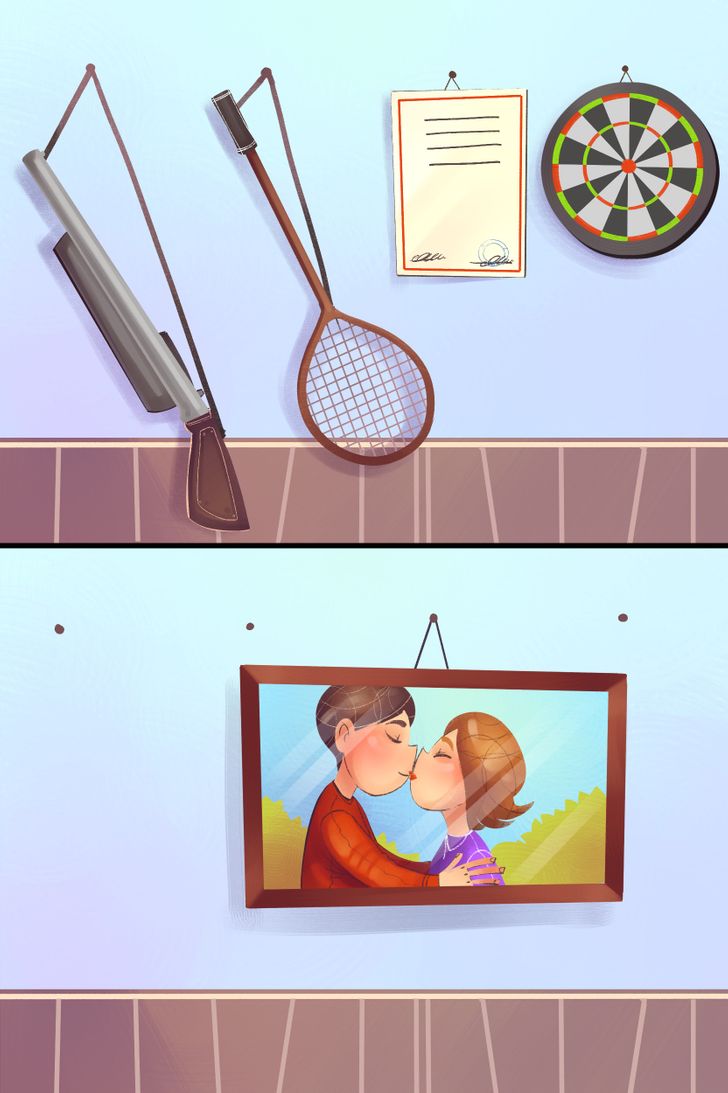
Don’t forget about your favorite activities and your hobbies. A new person should make your life more interesting and they should add to your life.
An enthusiastic and active person who is interested in many different things is very attractive as a partner. Don’t make your loved one the center of your universe. It’s important to understand that it’s unfair to your partner if you completely depend on them for your happiness, your well-being, and your overall mood.
6. You turn a blind eye to alarming signals.
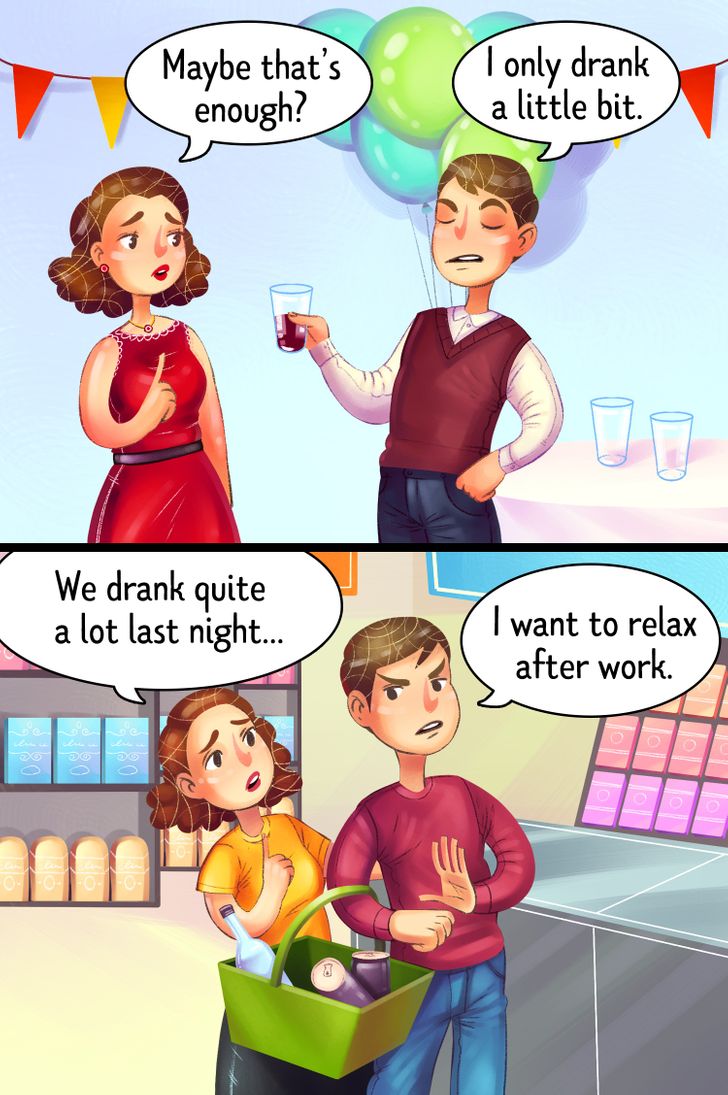
Pay attention to any feelings, doubts, and suspicions you may have. If something about your partner’s behavior is disturbing to you, don’t hesitate to address the issue right away. Don’t hope that your partner will change on their own. It should be enough to say it once to someone who values you in order for that person to start making an effort to improve the situation.
Don’t feel the need to justify your partner’s actions against you by his childhood traumas, his situation at work, or issues that he’s experiencing in his family. There’s no need to be your partner’s savior. If you’re constantly finding yourself playing the role of the victim in your relationship, you need to figure out why.
5. You unreservedly trust the opinion of your partner.

If you suddenly catch yourself doing something you never would’ve done before just because your partner pressured you into it, then this is a bad sign. Replacing your beliefs with those of your partner means that you’re losing a significant part of yourself and you’re not being true to who you are. It’s OK to adjust your beliefs if that’s how you actually feel, but it’s not a good sign if you find yourself blindly agreeing to everything your partner wants you to agree to.
You risk becoming your partner’s shadow and this will not only lead to a series of health issues, but it will cause your partner to lose interest in you.
4. You feel incredibly jealous over every little thing.
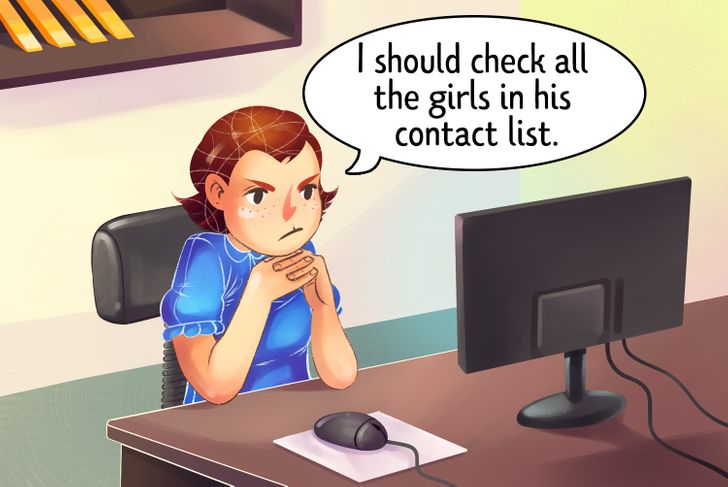
Unfortunate experiences in the past or the fear or loneliness shouldn’t affect your present. Do the reasons for your jealousy really exist or are they just in your imagination? It’s possible that excessive feelings of jealousy can put you at risk of losing your partner not because of someone else, but because of you. Nobody can withstand constant distrust and no one wants to have to reassure you of their love.
There’s another side to the issue of jealousy: there may be an actual reason to be jealous, but instead of hearing the desired, “I’m sorry. I didn’t think it would hurt you. It won’t happen again...” you keep hearing the same phrase in an agitated tone, “It doesn’t mean anything.” If you find yourself dismissing this and convincing yourself and others that your relationship is strong and healthy but you’re plagued with fears and doubts, then you may need to reconsider some aspects of your relationship.
3. You can’t stand it when your partner isn’t around.
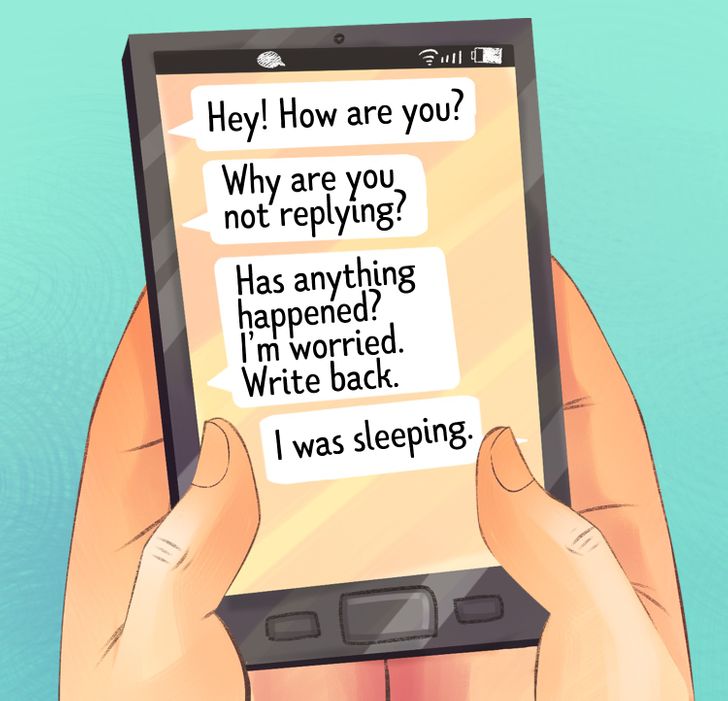
It’s quite common to want to spend all of your time with your partner. But it’s important to acknowledge the fact that time spent apart is also valuable. Remember that there are things you can (and sometimes even have to) do on your own. Leave some healthy space between you and your partner if you don’t want to feel like you’re smothering each other.
Try not to concentrate on negative thoughts like, “What if they’re with someone else?!” Because it’s quite possible that your partner is busy. It could be that they’re hanging out with a friend or someone from work, but that’s something that they should neither hide nor ask permission for. Your anxiety won’t change the situation for the better and will definitely only make it worse. Don’t fill all of your free time with thoughts of your partner. Focus on your own responsibilities and things that make you happy and this will lead to your partner being more interested in you.
2. You justify your partner’s terrible behavior.
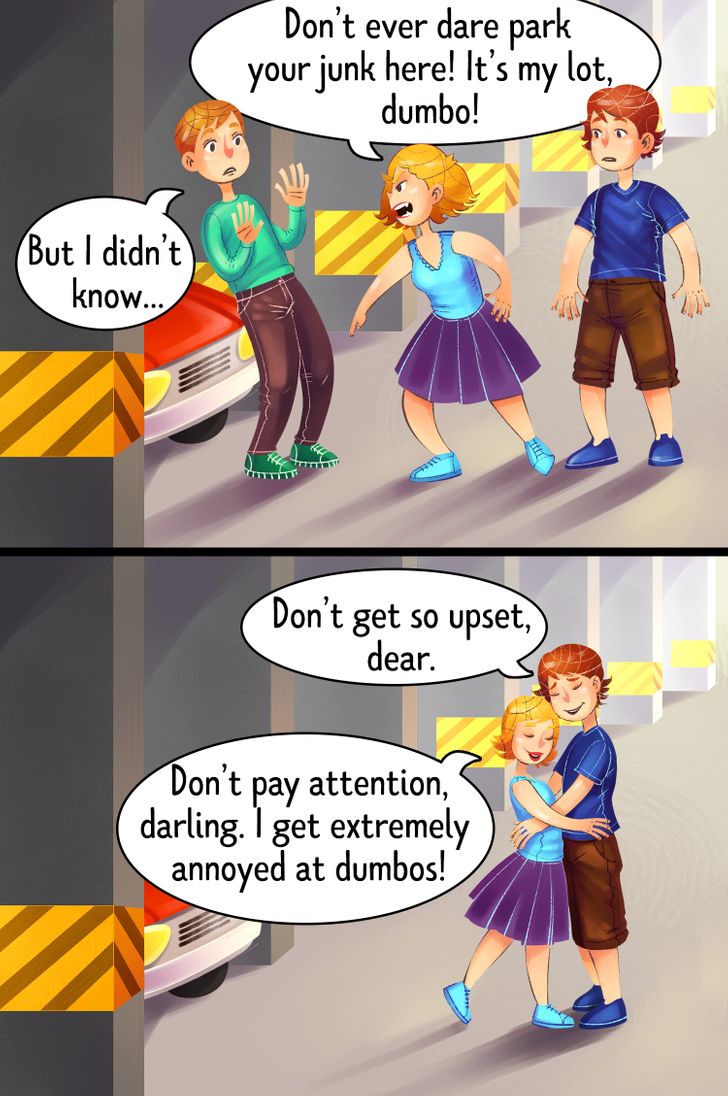
When we’re in love, we tend to be a bit blind to anything that’s not perfect about our partner. But it’s worth paying attention to the little things about your partner’s behavior toward you and toward others because what you may not notice through rose-colored glasses could actually be extremely important later on in the relationship.
If your partner acts kind and attentive toward you on your first date, but he then suddenly starts to shout at the waiter for mixing up the dishes, then this is a warning sign. When the honeymoon phase of your relationship passes, it could be you who ends up having to listen to your partner’s insults when it takes you 20 minutes to get ready instead of 10.
1. You can’t just say, “No.”
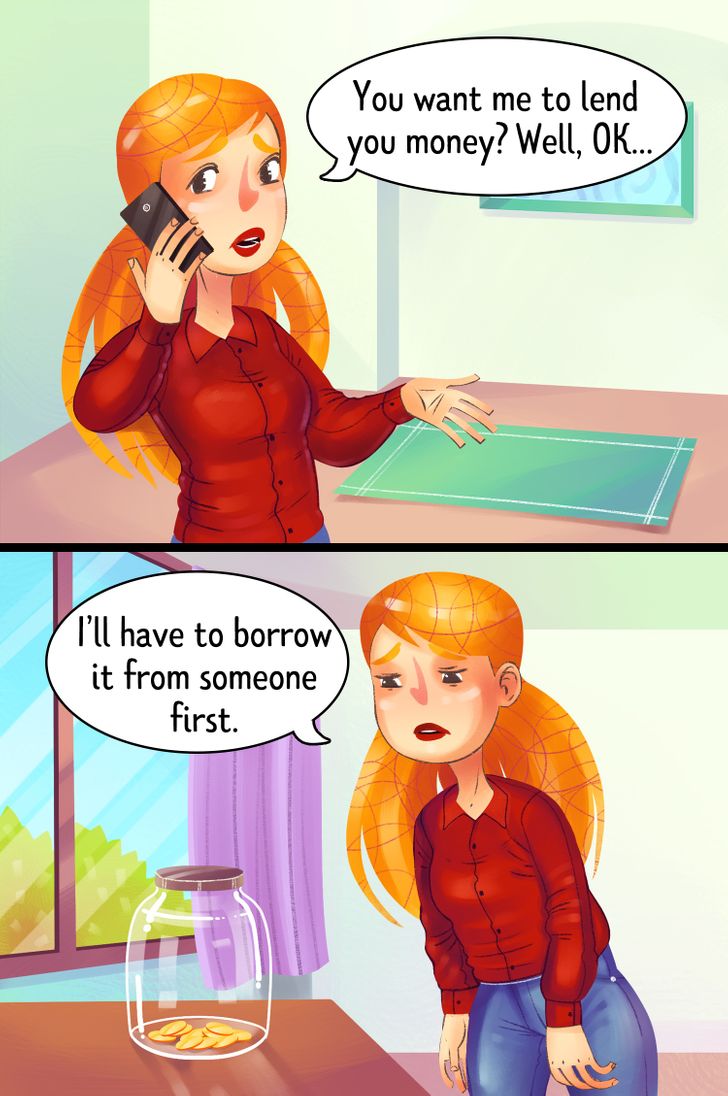
Can you say no to your partner? You don’t have to always accept everything your partner offers. Don’t hesitate to refuse invitations to events that aren’t of interest to you, events that don’t fit your schedule, or requests that you feel are inappropriate. There’s no reason to agree to something you don’t want to do just because you don’t want to offend your partner or because you don’t think your partner will understand your reasons for feeling a certain way. Don’t lose yourself to please another person because, in the end, it won’t be appreciated.
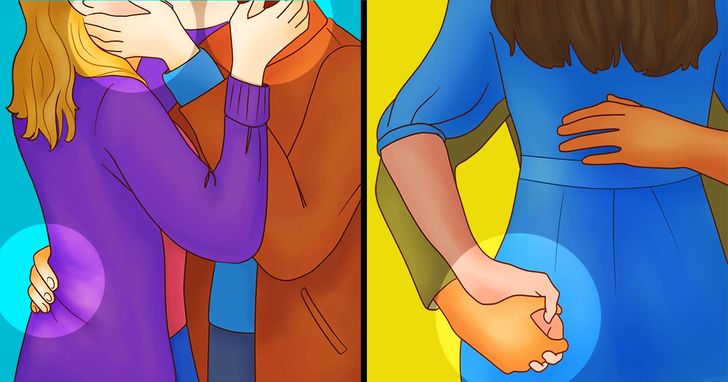
Bonus: what to do when you feel worried and your emotions are about to take over?
The psychologist Olga Chizh gives simple advice on how to help yourself when emotions and feelings literally overwhelm you.
1. Don’t place the responsibility of your emotional state on your partner. You are the only person responsible for it.
2. Don’t obsess over what your beloved one is doing, what their words meant, how to understand their actions, etc. Don’t let negative fantasies and speculation torment you. Go back to the state of being “here and now” more often. It can really help to concentrate on your breathing.
3. Locate a comfortable place in your body and mentally put an “internal observer” in that area. This is a part of you that will preserve objectivity in any situation and won’t let emotions get the best of you. Look around and see the situation through the eyes of the “internal observer.” If you’re feeling emotionally overwhelmed, remember that those feelings and the feelings that you’re experiencing toward your partner at that moment do not define the entirety of your life.
4. Look for resources: what can cheer you up and distract from obsessive thoughts about your partner? A cup of coffee, a good film or a book, exercise, a hot bath, a conversation with a friend? Any way to get you out of your head is good.
If nothing helps and you feel that you can’t get out of a complicated and painful relationship, don’t hesitate to turn to a professional therapist.
Have you ever experienced an unhealthy emotional dependence in your life? How did you manage to cope with it? Share with us in the comments below!
Comments
Related Reads
14 Dates That Started Like Movies but Ended Like Sitcoms
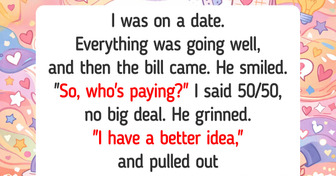
I Refuse to Help My Pregnant Sister, and I Don’t Feel Guilty

My Cousin Uninvited Me to Save Money—My Petty Revenge Was Absolutely Worth It

My MIL Threw Out My Breast Milk, So I Made Her Regret It
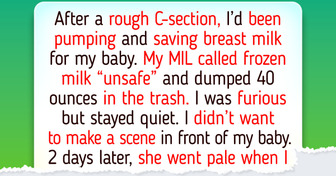
I Paid Half the Mortgage for Years—Then I Refused to Be Used Anymore
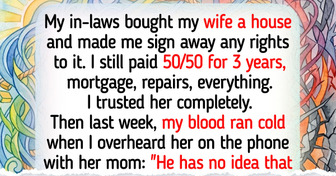
15 Stories That Prove Some Memories Are Impossible to Delete
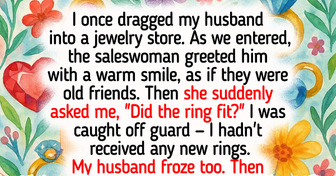
15 Times People Refused to Be Mean—And Kindness Proved More Powerful
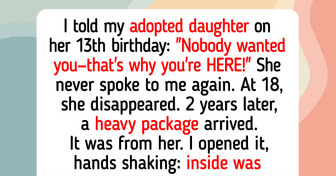
10 True Stories With Endings So Wild, Hollywood Couldn’t Write Them Better
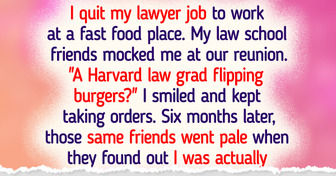
My Parents Refused to Fund My Education, So I Turned the Tables on Them
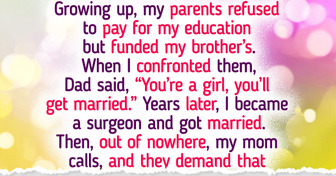
I Refused to Talk to My Parents After They Chose My Ex-Wife Over Me

14 Stories That Show the Raw Reality of Kids Caring for Their Aging Parents
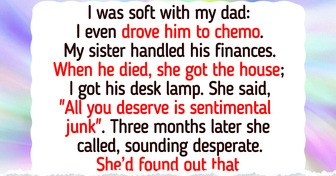
10 Moments of Superhuman Strength That Feel Like Winning the Olympic Games
